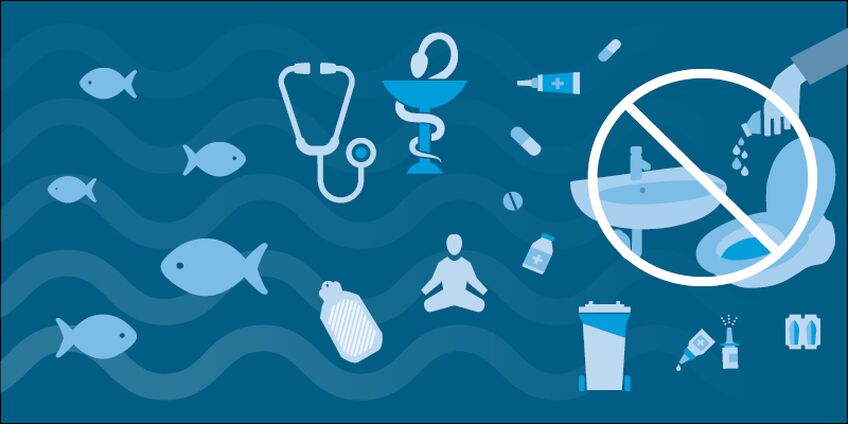Pharmaceuticals enter the environment and have undesirable effects there
Pharmaceutical products are essential tools in modern medicine and are present in our daily lives. Many of us take medications as needed or on a regular basis, with consumption often increasing as we age. After being metabolised—or sometimes even in their original form—many pharmaceutical substances are excreted by the human body and enter wastewater systems through urine, feces, and even washing off from the skin after topical application. Improper disposal of unused medications via sinks and toilets further contributes to this issue.
Wastewater treatment plants are not capable of completely removing all pharmaceutical substances. As a result, treated water often still contains traces of pharmaceuticals, which are discharged into surface waters. These substances pose risks to aquatic life, including fish, algae, amphibians, and other organisms. For instance, the synthetic hormonal compound found in birth control pills (17α-ethinylestradiol) has been shown to impair the reproductive ability of fish and amphibians even at very low concentrations.
Further Information: Entry, occurrence, and effects of pharmaceuticals in the environment
